051 #amld2019 #health #cities
A four day conference at EPFL at the end of January 2019 where I ran an open data workshop, and got to think a lot about human-to-machine relations.
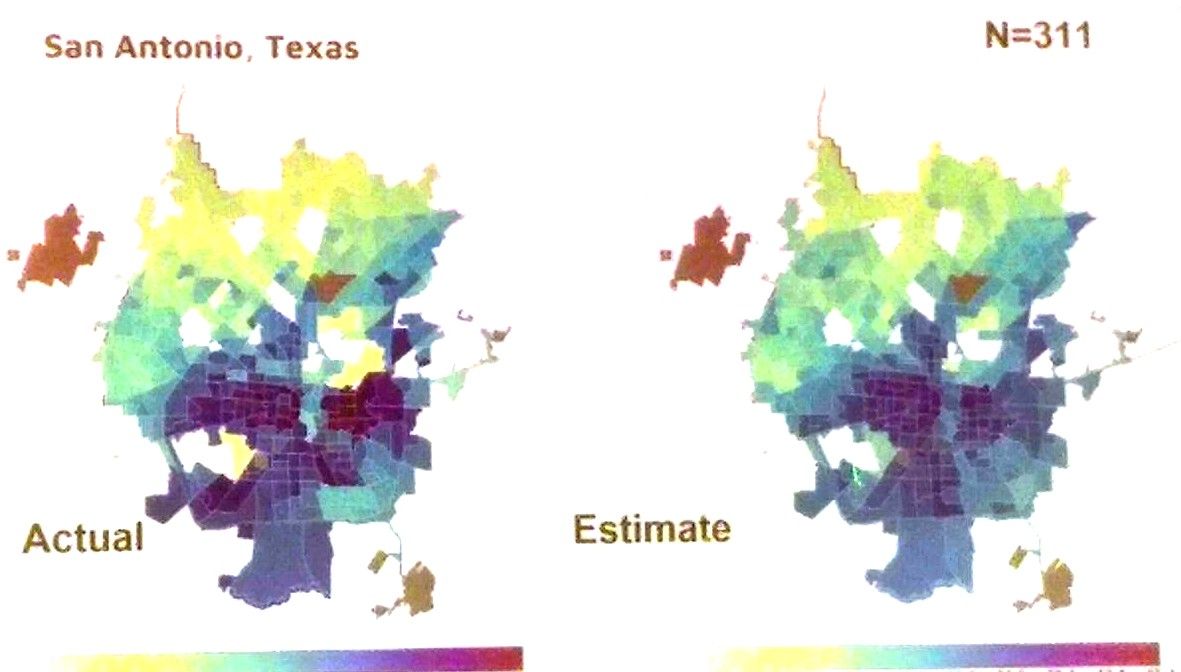
The Applied Machine Learning Days was a four day conference at EPFL in Lausanne at the end of January 2019. Following on the previous post on open data standards for machine learning, this post focuses on the AI & Health and AI & Cities that I participated in.
Title image: Variations of obesity problems across cities with surveys and Earth Observation data by @ensoesie
"Respondents have a tendency to search for information and rarely use statistical or mathematical models. Additionally, their data sources are diverse."
The role of the Data Scientist within Smart Cities (2016, PDF)
Earlier in this blog there have been many discussions of the open health topic, something that I am pursuing primarily through Opendata.ch and a new working group at the Society for Public Health, as interfaces to collaborating on projects in health topics. It was a privilege to be able to participate in the AI & Health track at AMLD moderated by the intrepid Marcel Salathé and @sunilmallya. You will find my notes on this topic further down.
My new focus in 2019 is ramping up work on the SmartUse platform for data flows in urban development. AMLD was host to half of our new startup team, and allowed us the chance to participate in a workshop about the governance of city planning, explore opportunities for open source collaboration, and talk to practitioners about data standards and leveraging A.I. tools for Civic Tech. We were blown away by the quality of the presentations in the track run by Konstantin Klemmer, Shin Alexandre Koseki and Nick Jones. Here are some of our raw and crowdsourced impressions.
#AIandCities panel with @vavacolor, @alex_pentland and @GoldsmithOnGov is on the way! You may call them the Urban Avengers! #AMLD2019 pic.twitter.com/fclwxNojR8
— Konstantin Klemmer (@kklmmr) January 28, 2019
Books were discussed, like Art is Open Source - The Near Future of human mutation, explored through arts, technologies and networks. Open data portals like datai.piemonte.it - an Italian project whose developer talked about.
At the AI & Cities track, @alex_pentland comments on biases in AI: "A tool that allows you to look at fairness in the system is practically a design tool that can surface biases. It helps people design a good policy, rather than being an AI policy tool." #AMLD2019 ⚖️🏙️ pic.twitter.com/EdBrsu6xoh
— Anna Ukhanova (@AnnUkhanova) January 28, 2019
Speaking of systems..
"I don't know about blockchain, we can talk about it later if you want.." (one of the panellists)
At Swissinfo or Republik you can read up on a referendum on zoning laws in Switzerland which was on the minds of many while the conference was happening, definitely a topic for us in the crowd.
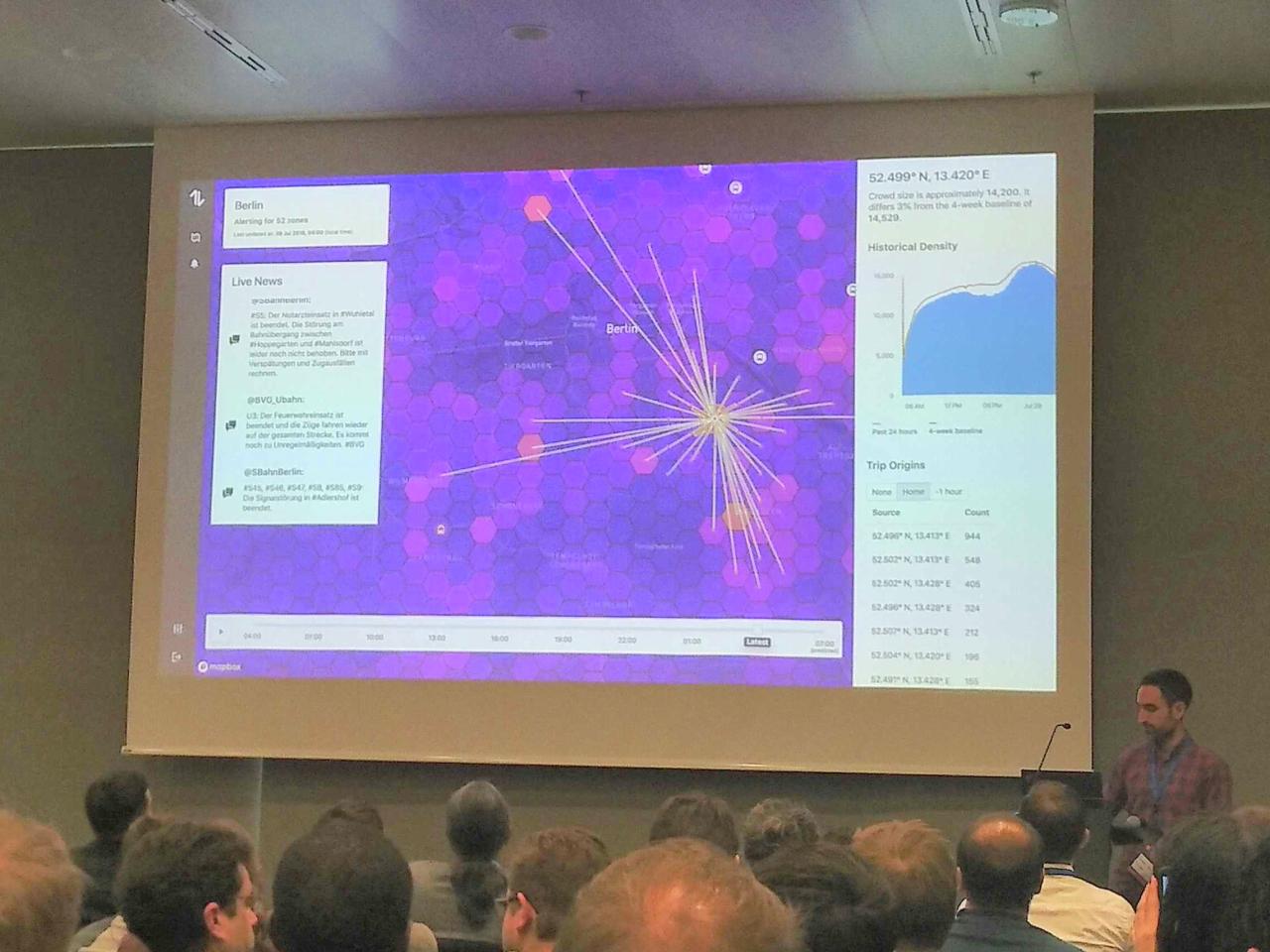
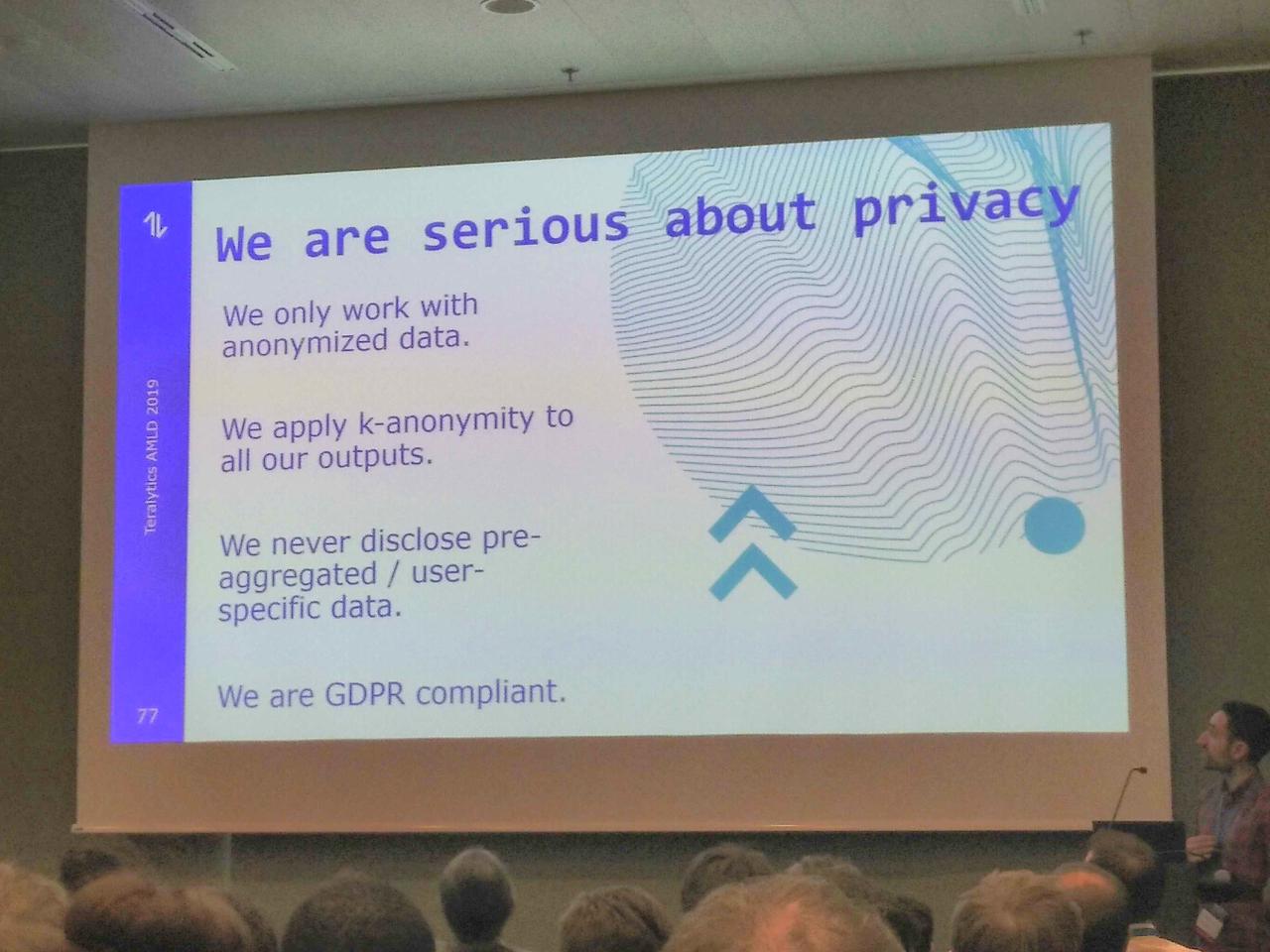
The impressive visuals and statements above were delivered by Christopher Nowzohour from Teralytics.
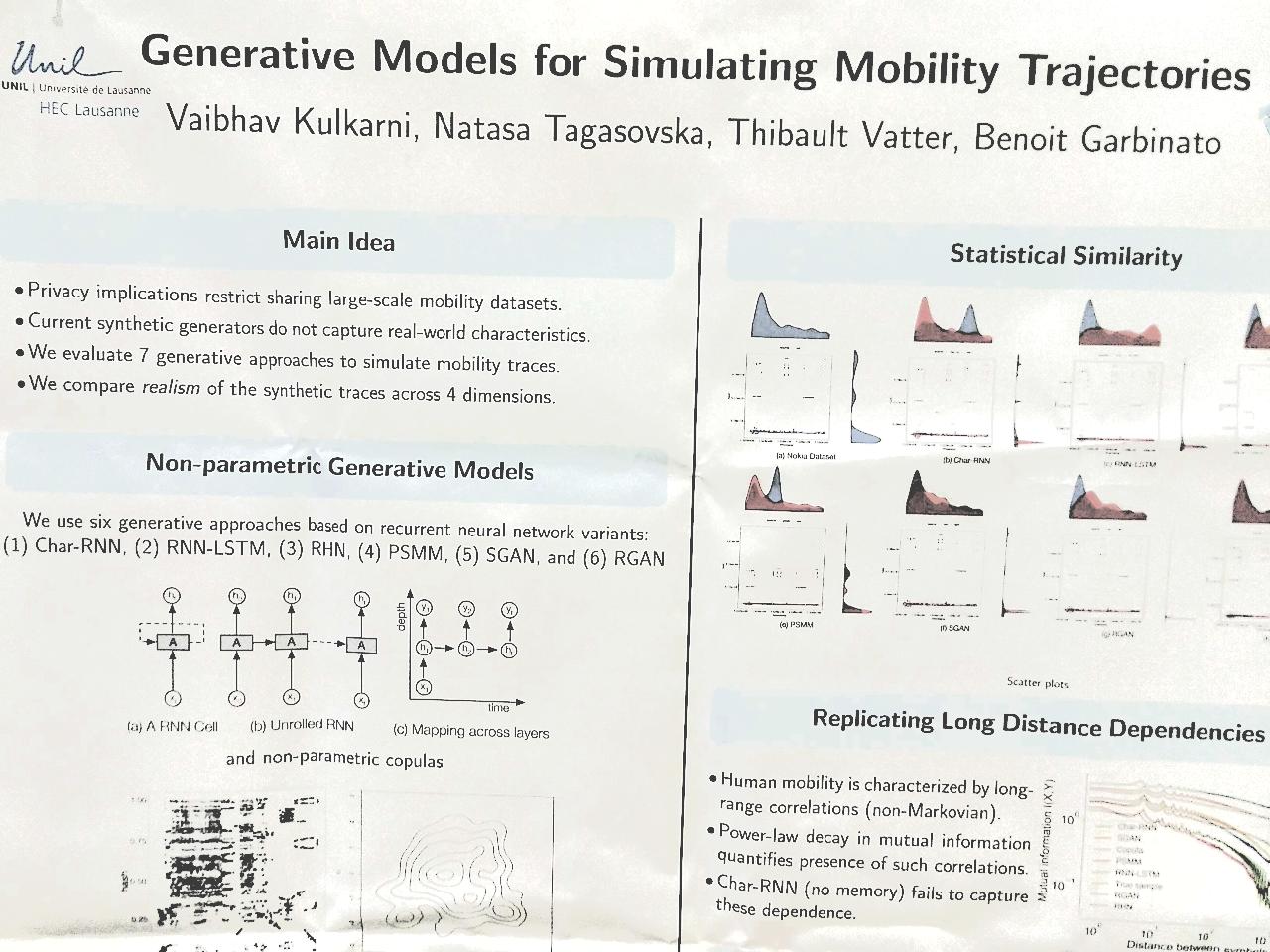
A snapshot of one of the really neat projects displayed in the poster session outside. Read the paper here about assessing statistical similarity and analyzing the privacy tradeoffs.
#AMLD2019 about to begin. Come by the poster session from 5pm to learn about open standards for machine learning deployment and its success in the Human Brain project @ludovicc @SvetaLevitan pic.twitter.com/lTPhizUydr
— Nick Pentreath (@MLnick) January 28, 2019
Another really interesting poster - on a topic closely related to my workshop - was from the medical informatics platform of the Human Brain Project, which you can find here.
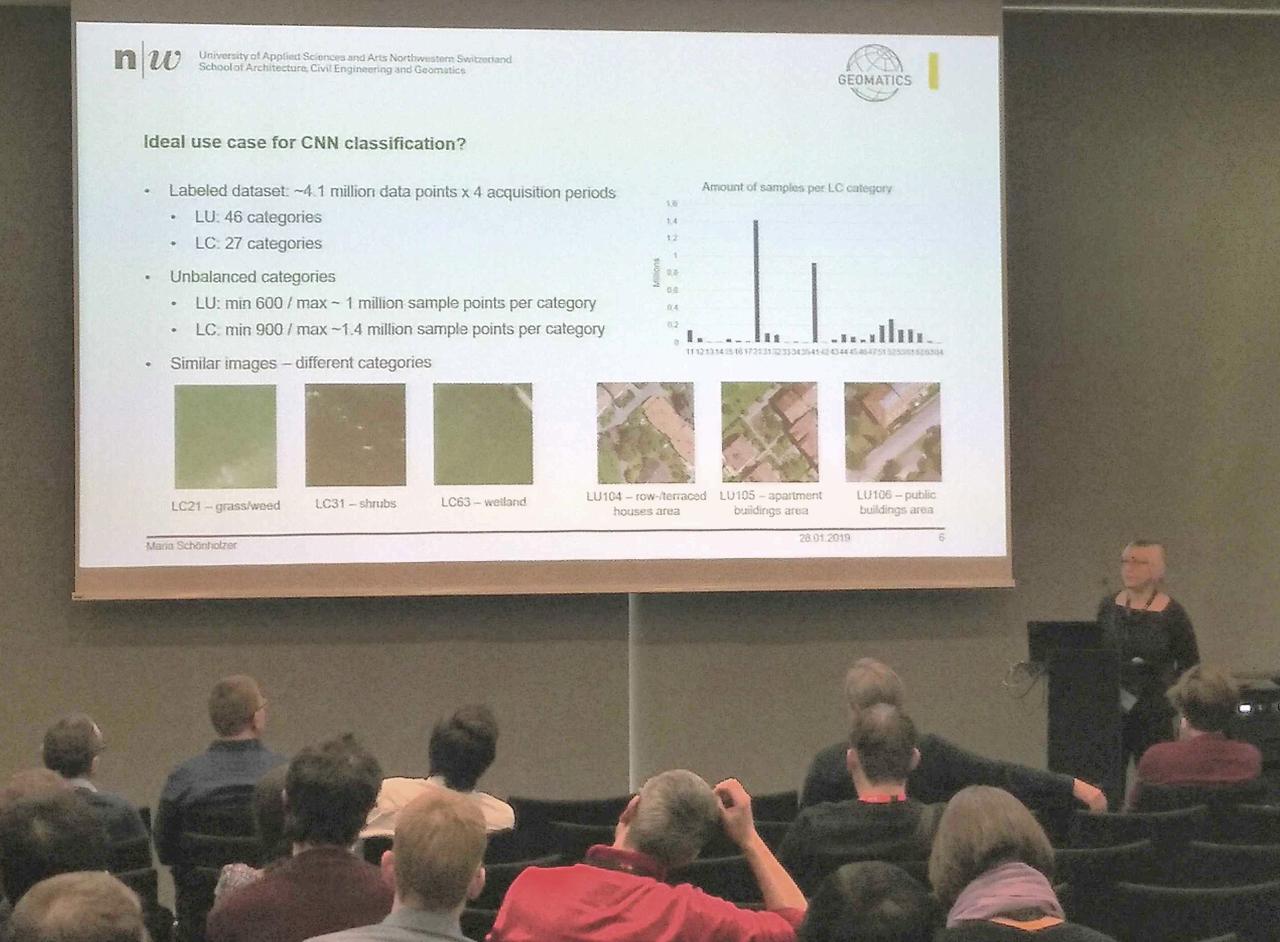
I dipped out of the Cities track briefly to hear Maria Schönholzer speak about "Deep Learning for Land Use/Cover Statistics of Switzerland".
"The risk for social divide multiplies exponentially...through the process [of building smart cities], that's why we encourage work with CSOs..developing ethical frameworks, technologies adapted to the needs of the citizens." --@vavacolor
Sentiments we can appreciate.
Labels matter. Who observes matters a lot.
The insights of Daniel Gatica-Perez were down to earth and super insightful. His paper Looking South: Learning Urban Perception has a good overview. As does No Classification without Representation, and the IDIAP project Dusk2Dawn: Characterizing Youth Nightlife Spaces, Activities, and Drinks.
"Grid-like representations emerge spontaneously within a neural network trained to self-localize, enabling the agent to take shortcuts to destinations using vector-based navigation."
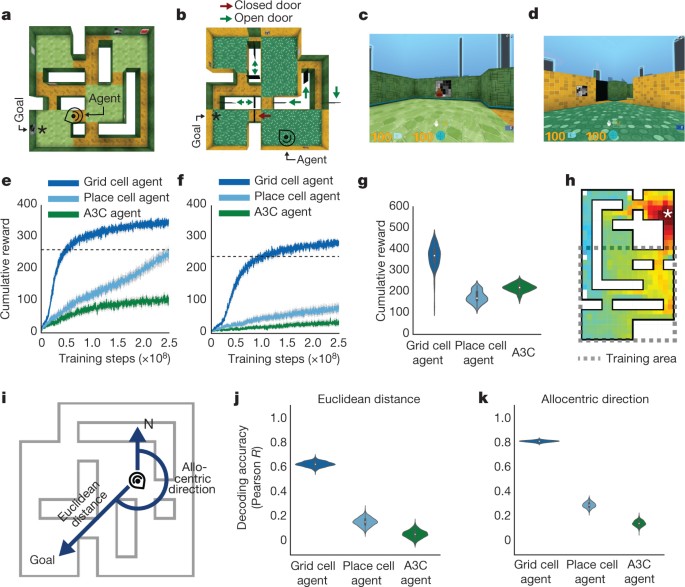
Fig. 3: Navigation in challenging environments. Vector-based navigation using grid-like representations in artificial agents (Nature)
Piotr Mirowski's presentation drawing from his experience on the Google DeepMind project was spectacular. The way he described using deep dreaming to gain insights from ML data seemed like science fiction - but is clearly science fact. Pro tip: you can request access to the StreetLearn dataset.
It was great to present at the #AMLD2019 and talk about how the #mobility insights we generate can help #cities take informed and data-driven decision #MachineLearning pic.twitter.com/we4aJJeheZ
— Mohamed Kafsi (@mou7) January 29, 2019
AI & Cities (3 takeaways)
— Elaine Nsoesie, PhD (@ensoesie) January 28, 2019
- Reduce inequalities between urban and non-urban areas through knowledge sharing
- How we use AI in society is a political choice. We need everyone at the table.
- Always evaluate the tools you develop. Is it doing what it is supposed to do? #AMLD2019 pic.twitter.com/zFIekhP4Ly
Elaine's talk the next day in the AI & Health track brought this message home with clear examples of how to design participative and impactful urban civic tech projects.
Stories of Urban Health Challenges and Opportunities from Jo'burg to Lausanne. Lots of food (& data) for thought, by @ensoesie #AMLD2019 #AIforHealth pic.twitter.com/KVDhBw4ZZw
— 00109370 (@sodacamper) January 29, 2019
"1 in 20 Google searches are health related"
Said Evgeniy Gabrilovich, to explain the rationale behind Symptom Search and other projects he works on at Google.
Great talks at the packed AI & health track at #AMLD2019 pic.twitter.com/AcqB3t18Sf
— Marcel Salathé (@marcelsalathe) January 29, 2019
An illustrative paper on one of the public health topics in this talk is the Nature Digital Medicine review on Machine-learned epidemiology: real-time detection of foodborne illness. And another interesting project discussed was the Twitter-based reporting @HealthMap_Food project.
@lajello talking about food consumption and health in cities #AMLD2019 pic.twitter.com/YK0LQFmZf1
— Emanuele Massaro (@emanuelemassaro) January 29, 2019
There are foundations issues in real world patient data that need to be adressed first #AMLD2019 AI&Health pic.twitter.com/dRZmI0WZH0
— Clement Fernandez (@clemfernandez) January 29, 2019
Among the outstanding posters outside were serious medical applications like this one:
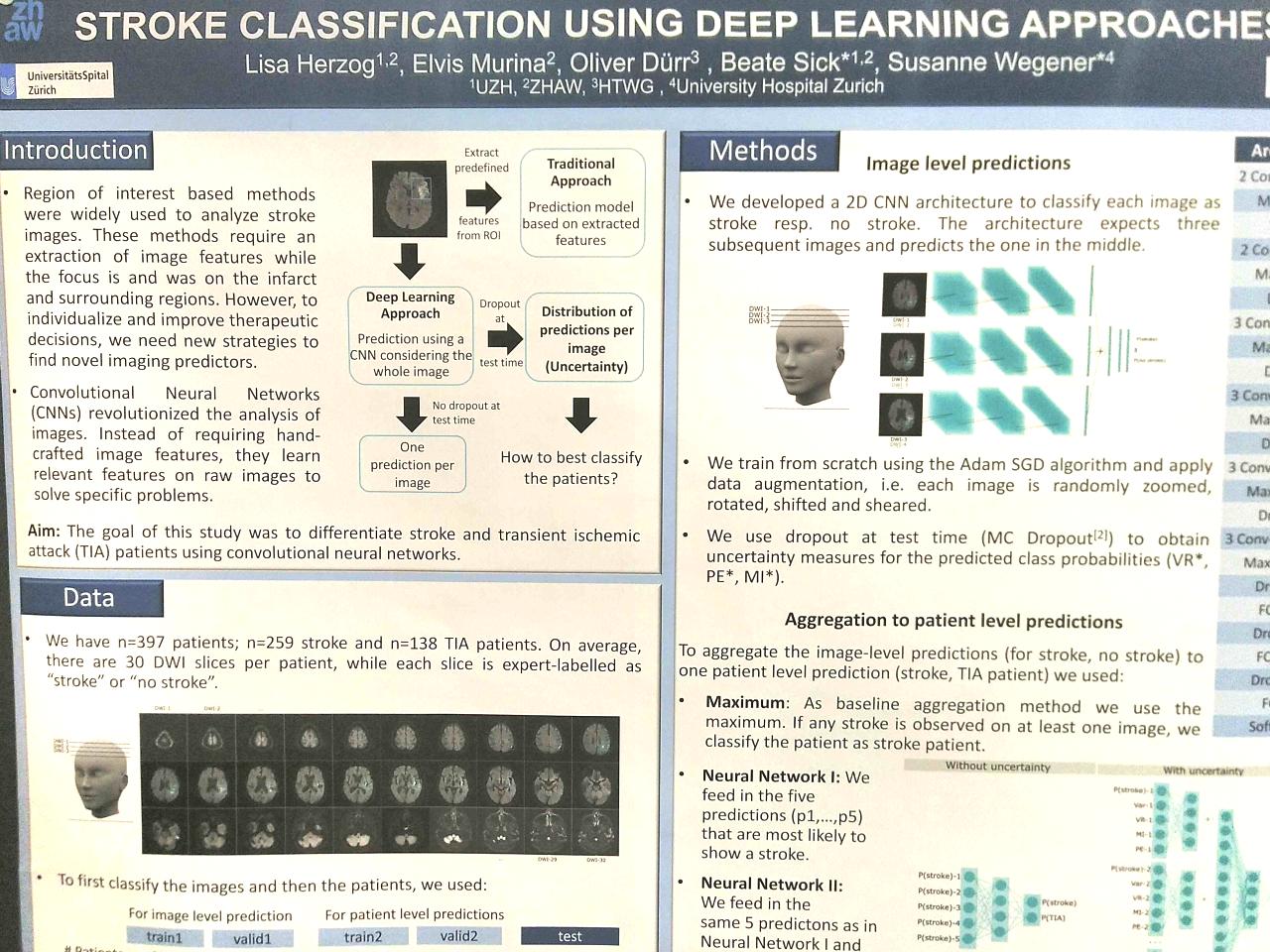
The #AI & Health track at @appliedmldays is very diverse. We’ve listened to talks on prostrate cancer, rheumatology, foodborne illness, rehabilitation after a stroke and there’s more to come ... #AMLD2019
— Elaine Nsoesie, PhD (@ensoesie) January 29, 2019
Insightful, motivating, and just a bit overwhelmed, I look forward to bringing some of this material to discussion in the Technologies in Public Health group. And putting fresh fuel on the fire of urban health data. 🔥
Visit #AMLD2019 for visuals, drop oleg @ TLD a line if you have any questions, and don't miss my previous post on data standards for machine learning.

